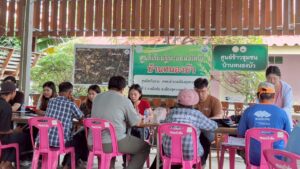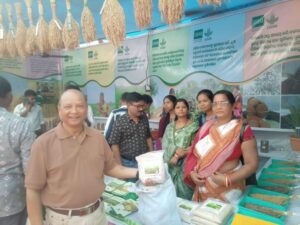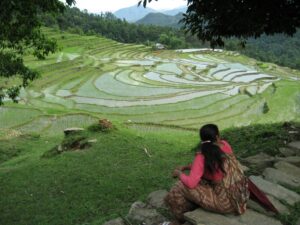
Unmanned aerial vehicle or drone technology has various applications in agriculture.
Drone footage provides a more integrated visual inspection of a rice field from above and makes it possible to gather more accurate, efficient, and location-specific data compared with traditional data gathering instruments. Through remote sensing, drones are used to collect field data in form of raw images that capture various indicators of nitrogen crop growth status, for example, the greenness of the leaf and the density of the canopy.
“Using emerging technologies, we aim to develop tools and models for decision-making in nutrient management that result in sustainable practices and input use-efficient rice-based cropping systems,” said Dr. Ando Radanielson, a former IRRI cropping systems modeler. (See Researchers use drones to study nutrient status, greenhouse gas emissions of rice crop.)
Drones can also be used specifically for crop protection through pesticide spraying. The technology allows for a faster, safer, and more precise way of applying liquid chemicals while limiting the exposure of farmers to loading the liquid into the drone, lessening the risks to their health.
The International Rice Research Institute (IRRI) offers a 5-day course designed to equip participants with the knowledge and skills in operating multicopters for pesticide spraying. Participants will get the opportunity to practice drone operation in the field.
More information about IRRI Education’s Agricultural Drones: Crop Protection course.











can i join the training?
Please visit IRRI Education for more info on the drone training. Thank you.
Please give me information to register for a drone training course. Thank you
The drone training course is not available for now. Please visit the IRRI Education site for updates on this. Thank you.